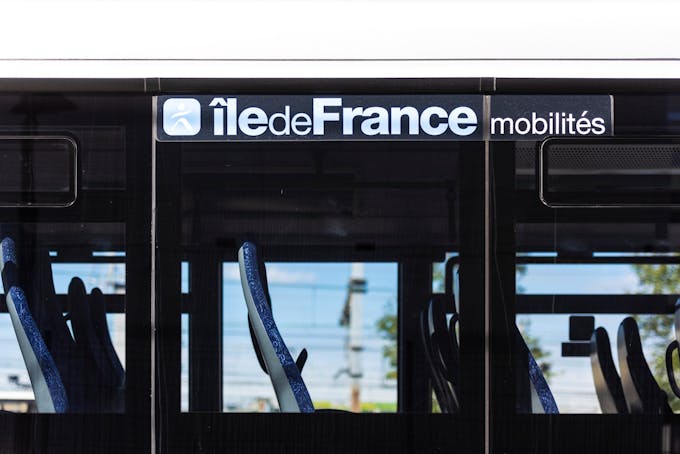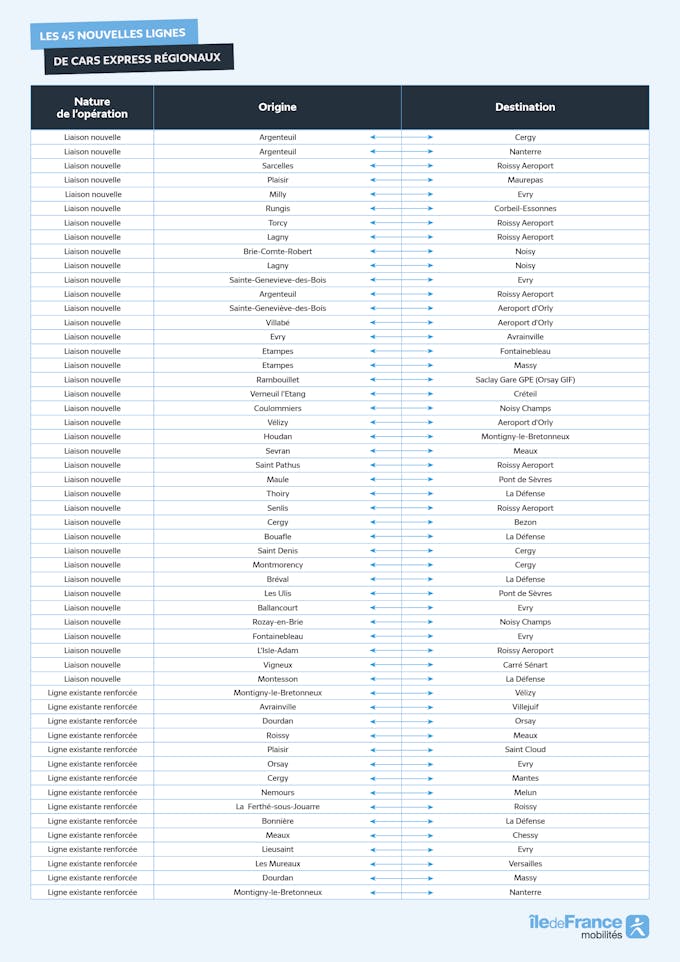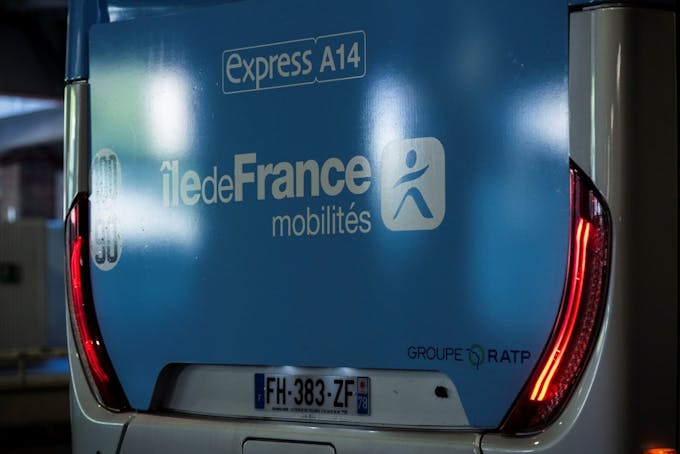A Cars Express network project to quickly connect the outer suburbs to the rest of Île-de-France

Facilitating access to public transport is an essential criterion for the quality of life of the inhabitants of Île-de-France.
In some parts of the outer suburbs, far from train and RER lines, connections between the local transport network and the main roads of the public network are still limited, often forcing residents to use their personal vehicles for their daily journeys (home-work, home-study, etc.).
An inequality of access to collective mobility to which Île-de-France Mobilités wishes to respond concretely.
The Cars Express network: simply connecting the outer suburbs to the rest of the Ile-de-France region
Based on this observation, Valérie Pécresse, President of Île-de-France Mobilités and the Île-de-France Region, asked François Durovray, President of the Essonne Department and administration at Île-de-France Mobilités, to work on a project to create a network of Regional Express Cars (CER) that will link the outer suburbs to the public transport of the Île-de-France Mobilités network.
A new network whose ambition is to improve the mobility of Ile-de-France residents and densify the bus offer, while offering an ecological, economical, comfortable and efficient alternative to the private car.
What would the Cars Express network look like?
After several months of work, listening to local authorities, line operators and passenger associations, François Durovray presented, on 30 November 2023, a plan for the deployment of the Regional Express Cars project, the first of which could start operating as early as 2024.
The Regional Cars Express project is:
- 45 new lines and 9 existing reinforced lines that will connect the outer suburbs to the Île-de-France collective network from the region's main roads.
- The development of about thirty reserved lanes in regional motorway traffic to guarantee a fast journey, a guaranteed duration and save time compared to a journey made by car,
- The creation of some forty multimodal interchange hubs - places allowing passengers to change mode of transport, park their car, bicycle or two-wheeler before using the collective network or wait comfortably for the arrival of their coach - and the redevelopment of some thirty existing hubs,
- An accessible line with a high level of service with 100% clean coaches that allow passengers to telework with a computer, read, watch a film or exchange between passengers,
- A high-performance line with a limited number of stops and direct routes between each major hub.

A two-phase deployment
In the master plan for the Cars Express project, François Durovray proposes a two-phase deployment.
A first phase between 2024 and 2025
During which, the lines that can run on existing reinforced tracks or on the tracks intended for the Paris 2024 Games would first be deployed. This phase concerns a total of 24 routes , including those between Poissy-Meaux and Plaisir-Saint Cloud.
The bus lines chosen will connect to the extension of line 14 to Orly as well as to the southern section of the future metro line 15 between Pont de Sèvres and Noisy-Champs.
A second phase, starting in 2026
During this second phase, it would be the turn of the new links, dependent on bus lanes on the motorway, to be put into service. : 27 lines in total , including, for example, the links between Argenteuil-Nanterre or Thoiry-La Défense.
They will be connected to the rest of the metro lines in the inner and outer suburbs, lines 15 west and east, 16, 17 and 18.
What is the role of Île-de-France Mobilités in the development of the Cars Express project?
- Fully finance the commissioning of the 45 new lines and the reinforcement of the 9 existing lines, i.e. €300 million in investments,
- Financing the development of the various stations and multimodal hubs by 2030 at a cost of between 150 and 200 million euros,
- Carry out the operation of the lines with an annual budget of 70 million euros,
- To finance the purchase of 200 additional coaches for nearly 70 million euros.
